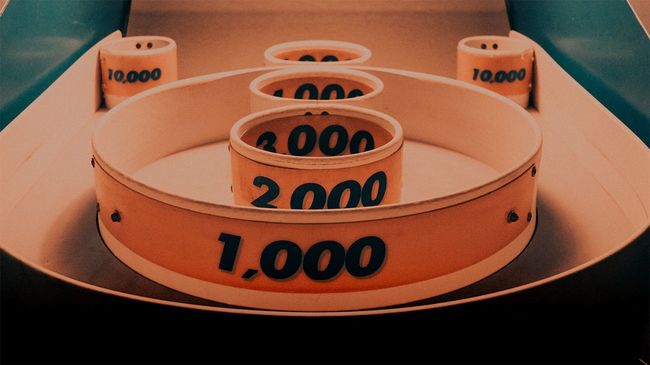Mortgage Points Explained: What They Are & How They Work

A common question for home buyers, especially first-time buyers, when they first see a loan estimate (LE), is about mortgage points. Unless you’re familiar with the mortgage industry, you probably aren’t aware of how mortgage “points” work or if they might make sense for your situation. Because your interest rate is impacted by the points included (or not) on your mortgage, it’s important to know the basics of what they are and how they work to fully understand the pros and cons.
What are mortgage points?
Also commonly known as “discount points” or “buying down the rate”, mortgage points are upfront fees paid directly to the lender at closing in return for a lower interest rate. Essentially, you pay a little more upfront to lower your monthly payment and potentially save thousands in interest over the life of the loan. One “point” equals 1% of the total amount of your home loan (or more simply $1,000 for every $100,000 borrowed).
Simple, right?
But the question is why does this make sense? More importantly, does it make sense for your situation?
Calculating your break-even point
For the most part, the longer you plan to own your home, the more points you buy down now, the more you would save in interest payments from paying less monthly over the life of the loan.
Since buying down your rate is an upfront and additional cost, it’s important to consider your break-even point (how long it will take to recoup the cost). There must be an ideal point in time at which your overall savings becomes MORE than the additional cost of paying points for a lower interest rate otherwise it just doesn’t make sense financially.
To calculate the break-even point, divide the cost of the points by how much you save on your monthly mortgage payment. The result will determine how long it takes for the interest savings to equal the cost of the mortgage points used.
Let’s use a quick example to explain how this might work:
- Let’s say your points cost $6,000
- You save $87.81 in monthly mortgage payments
- Divide the $6,000 of paid mortgage points by the $87.81 in monthly savings which equals 68 months to recoup your initial investment.
What you must now determine is the time you expect to remain in the home for you to at least reach the break-even point. If you decide to sell your home before your break-even point of 5 years and 6 months (68 months), then you would not have saved money by buying mortgage points when you took out the loan.
When is it worth it to buy points?
Typically, most financial advisors would say that if you can’t break even in 36 months or less then it won’t make sense.
If you're planning to move or refinance in a couple of years, paying points is probably not a good move.
Think of it as if you’re putting money in a bank to make interest. The longer you have to wait to get the return is also a factor. Waiting longer than 36 months in most cases means that you may have been able to put those same funds in a different investment vehicle and make more money than what the cost would’ve saved you.
Key facts about mortgage points
The terms around buying mortgage points can vary significantly from lender to lender so consider the following carefully.
-
The lender and marketplace determine the interest rate reduction you receive for purchasing points so it’s never fixed.
-
Mortgage points and origination fees are not the same things. Mortgage or discount points are fees paid in addition to origination fees.
-
You can potentially receive a tax benefit from purchasing mortgage points. Make sure to contact a tax professional to learn how buying points could affect your tax situation.
-
Mortgage points for adjustable-rate mortgages (ARMs) usually provide a discount on the loan’s interest rate only during the initial fixed-rate period. Calculate the break-even point to determine if you can recoup what you paid for in points before the fixed-rate period expires.
-
Crunch the numbers if you’re on the fence on whether to put a 20% down payment or buying mortgage points. If you choose to make a lower down payment, you may be required to carry private mortgage insurance (PMI) so factor this additional cost because it could offset the interest savings earned from purchasing points.
Does it make sense for you?
To determine whether mortgage points are right for you, you need to find out how much you have available for the home buying process: down payment, closing costs, monthly mortgage payments, and mortgage points.
Use our mortgage calculators to help you work out how much cash you need to close.
Buying points to lower your interest rate makes the most sense if you select a fixed rate mortgage and you plan on owning your home after you’ve reached a break-even point of 36 months or less.
Under the right conditions, purchasing points when you purchase a home can save you quite a bit of money over the full length of your loan term. Remember, there’s a lot to think about when considering “paying”/“buying” points to lower your rate. To be absolutely sure you’re making the right decision, contact one of the mortgage experts at American Financing if you’re considering buying a home and leveraging mortgage points.




